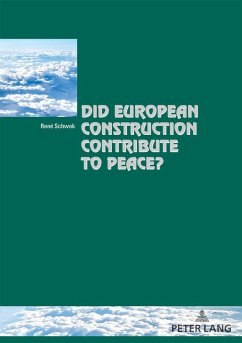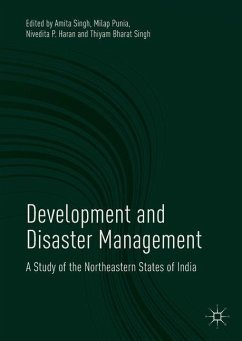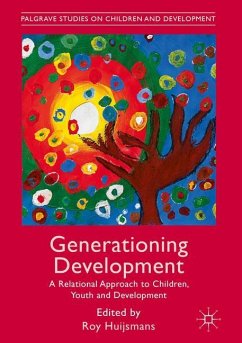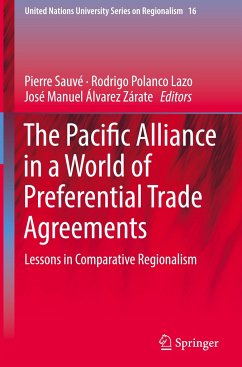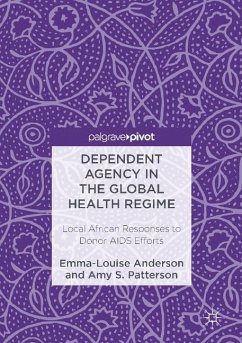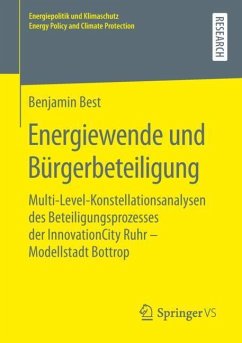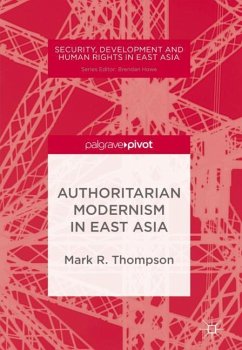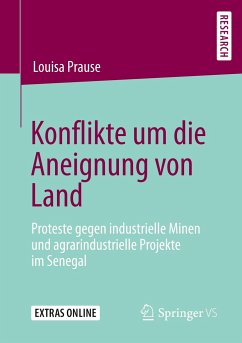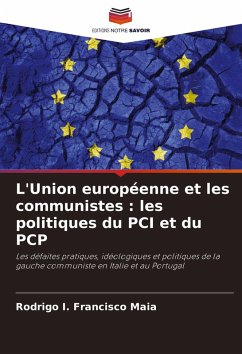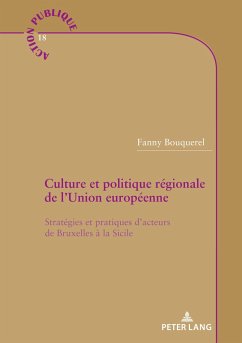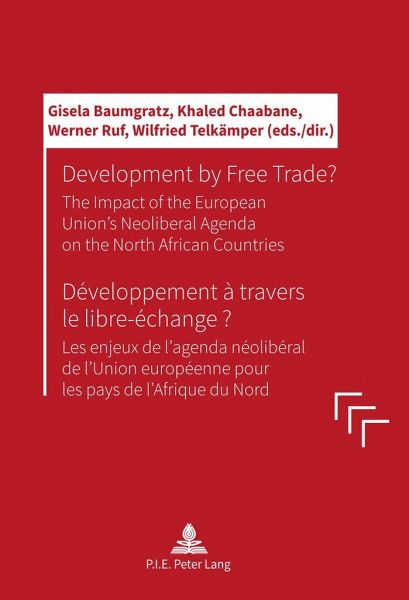
Development by Free Trade? Développement à travers le libre-échange?
The Impact of the European Unions' Neoliberal Agenda on the North African Countries Les enjeux de l'agenda néolibéral de l'Union européenne pour les pays de l'Afrique du Nord
Herausgegeben: Baumgratz, Gisela; Chaabane, Khaled; Ruf, Werner; Telkämper, Wilfried
Versandkostenfrei!
Versandfertig in 6-10 Tagen
60,85 €
inkl. MwSt.

PAYBACK Punkte
0 °P sammeln!
One year ago the negotiations between Tunisia and the European Union about a deep and comprehensive free trade agreement (DCFTA) had started in Tunis. Experts from both sides of the Mediterranean accepted to contribute to this book in order to foster the public debate in the North-African countries by informing actors of the civil society about the risks of this new generation of free trade agreements of the EU for the respective countries and their population. In fact, by analyzing the impact of the structural adjustment programs of the World Bank and the International Monetary Fund in Tunisi...
One year ago the negotiations between Tunisia and the European Union about a deep and comprehensive free trade agreement (DCFTA) had started in Tunis. Experts from both sides of the Mediterranean accepted to contribute to this book in order to foster the public debate in the North-African countries by informing actors of the civil society about the risks of this new generation of free trade agreements of the EU for the respective countries and their population. In fact, by analyzing the impact of the structural adjustment programs of the World Bank and the International Monetary Fund in Tunisia, Morocco and Algeria since the late 1980s followed up by the EU's free trade policy, the authors seriously doubt about the positive effects on development and prosperity promised by the promotors of free trade. They underline, on the contrary, that it is the EU which profits from the asymmetric power-relations in order to pursue its economic and especially its security interests related to "illegal migration".
Publié un an après le début des négociations sur l'Accord de libre échange complet et approfondi (ALECA) entre la Tunisie et l'Union européenne, cet ouvrage veut contribuer au débat public dans les pays concernés et alerter les acteurs de la société civile sur les risques que comporte cette nouvelle génération des accords de libre-échange de l'UE. Les experts nord-africains et européens réunis pour débattre des enjeux de la politique économique de l'UE vis-à-vis des pays de l'Afrique du Nord mettent sérieusement en cause la promesse de développement et de prospérité du libre-échange. Analysant l'impact de cette politique entamée par la Banque mondiale et le FMI depuis les années 1980 en Tunisie, en Algérie et au Maroc et poursuivie par l'UE, ils soulignent au contraire que l'UE profite de l'asymétrie des relations de pouvoir pour poursuivre ses intérêts économiques et sécuritaires liés à la « migration illégale ».
Publié un an après le début des négociations sur l'Accord de libre échange complet et approfondi (ALECA) entre la Tunisie et l'Union européenne, cet ouvrage veut contribuer au débat public dans les pays concernés et alerter les acteurs de la société civile sur les risques que comporte cette nouvelle génération des accords de libre-échange de l'UE. Les experts nord-africains et européens réunis pour débattre des enjeux de la politique économique de l'UE vis-à-vis des pays de l'Afrique du Nord mettent sérieusement en cause la promesse de développement et de prospérité du libre-échange. Analysant l'impact de cette politique entamée par la Banque mondiale et le FMI depuis les années 1980 en Tunisie, en Algérie et au Maroc et poursuivie par l'UE, ils soulignent au contraire que l'UE profite de l'asymétrie des relations de pouvoir pour poursuivre ses intérêts économiques et sécuritaires liés à la « migration illégale ».



